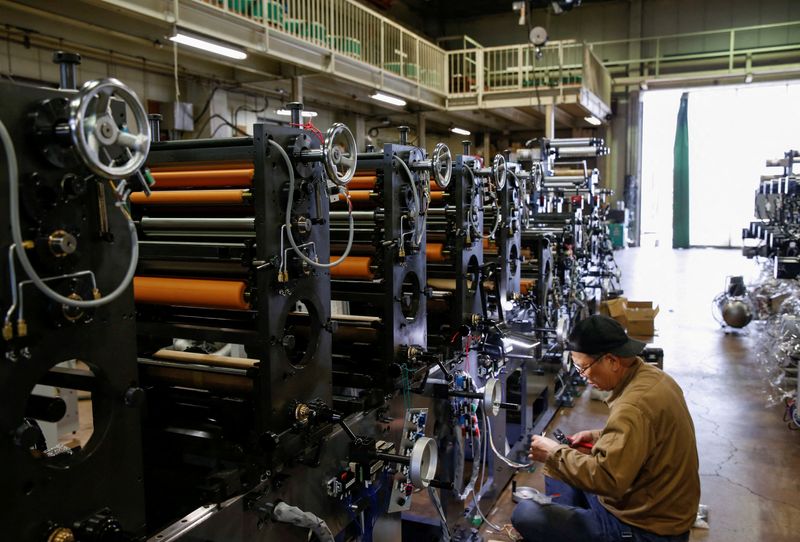By Leika Kihara
TOKYO (Reuters) - Japan's economy has recovered and is running near its full capacity in the second quarter, data from the central bank showed on Wednesday, adding to growing signs that conditions for phasing out its massive monetary stimulus are falling into place.
The output gap, which measures the difference between an economy's actual and potential output, stood at -0.07% in the April-June period, according to Bank of Japan estimates.
While it was the 13th straight quarter of negative territory, the gap narrowed from -0.41% in January-March.
"The outcome suggests the output gap could turn positive in July-September or the October-December period," analysts at SMBC Nikko Securities said in a research note.
The output gap is among data that the BOJ watches closely to determine whether the economy is expanding strongly enough to cause a demand-driven rise in inflation.

A positive output gap occurs when actual output is more than the economy's full capacity, and is considered a sign of solid demand. It is seen by analysts as among prerequisites for wages to rise more, and push inflation sustainably above the BOJ's 2% target.
The BOJ expects the output gap to turn positive from around October this year and continue to expand moderately.